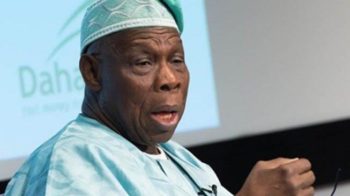
By Lakin’ Goodluck
When the Global System for Mobile Communication (GSM) was introduced into Nigeria in 2001, it was probably the most unexpected revolution at the time. Instantly, it broke the monopoly that once existed in mobile communication service in the country. Until its introduction, the access to mobile telephone was restricted to the priviledged few and those who owned a Thuraya were demigods. President Obasanjo warmed his way into some people’s heart by this singular interpolation in Nigeria. In fact, some people would unequivocally ascribe the title of the “Best Nigerian President” in recent time to Obasanjo just for the introduction of GSM. By the way, the Peoples Democratic Party (PDP) claims it as a major achievement of their 16years reign.
Well, events have overtaken that ecstasy that heralded the introduction of the mobile network. Today, Nigeria has four major providers including MTN, GLO, AIRTEL, and 9Mobile accounting for 142million active mobile lines as at June, 2017. MTN is the largest mobile network with 53million active lines, followed by GLO (37million), AIRTEL (34million) and 9Mobile (18million) respectively. When the GSM was introduced to Nigeria, our priority was not top-notch service delivery. In fact, we were so caught up in the excitement of the new sensation that we cared less about the service we were offered. It did not matter if we were paying fifty naira per minute regardless of the seconds in the minute. [By the way, that was a lot of money for a 10seconds call.] Soon, Nigerians got used to “flashing” until some mobile networks introduce the “call me back” service to rescue those who were afraid to flash for the fear of losing the fifty naira credit balance.
But those days have gone. A child that was born in 2001 is now sixteen years old and probably preparing to start university education. This is why it amazes me that the Nigerian telecommunication industry is still bedevilled by the same challenges it had when the mobile telecommunication companies started operations in the country. The problem of “dropped calls” still characterises the industry. It keeps getting difficult to hear one’s counterpart clearly on the phone these days. Sometimes, the network is so terrible that it practically turns a gentleman into a public nuisance. It is still common to see a well-dressed man screaming “I can hear you” repeatedly just to assure the person on the other end, who perhaps is also hearing a strange car honk from another world. It is so bad that people now have designated spots for phone call in their homes just because the entire house is not covered by the network.
In the midst of this embarrassing atmosphere, the mobile networks have neither stopped nor reduced sales effort to attract mobile customers to their networks. While some provide incentives such as 300% on every amount recharged; others simply reward customers on amount used. The enticing advances are just endless. A popular network even had a promo once with an aeroplane as the grand prize. [It will be interesting to meet the lucky winner of the aeroplane to at least confirm where it is parked or how much it was sold if that was the case.] Yet, they all still struggle in futility to provide clear and quality service. Sadly, it appears Nigerians are now comfortable with this reality. And gradually an abnormality is becoming the new norm.
Appreciatively, the NCC that is responsible for the regulation of the mobile telecommunication operations in the country has taken some steps to address this challenge. Just recently one of the mobile network service providers was barred from an unnecessary promo it had embarked on to attract new customers – when the existing ones are not enjoying quality service. However, the Commission needs to do more to entrench sanity in the industry. Communication is the life of any economy; the ease and affordability of mobile telecommunication service in a country are significantly linked to business performance. A deficient telecommunication industry enervates business growth. The solution to the challenges facing the industry goes beyond sanctions; it requires a collaborative effort built on well-articulated plan to grow and bolster the telecommunication infrastructure in the country. Without a state-of-the-art infrastructure, sanctions can only mollify the bitter subscriber in the short term. The problem will persist still.
Nonetheless, beyond the economic benefits of having quality telecommunication service in the country, it is also essential for the advancement of a sane society. It is lesser madness to have an adult shout in the open just to ensure the person on the other end decodes the message. It’s not worth it and completely avoidable. Let’s restore our sanity by restoring quality telecommunication service.
Related Posts:
Copyright Ships & Ports Ltd. Permission to use quotations from this article is granted subject to appropriate credit given to www.shipsandports.com.ng as the source.
